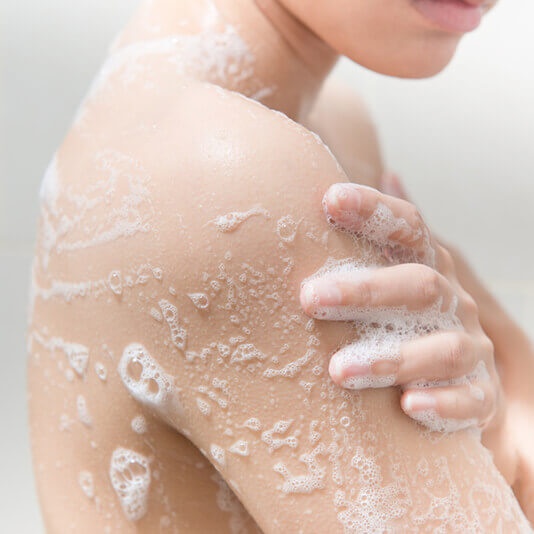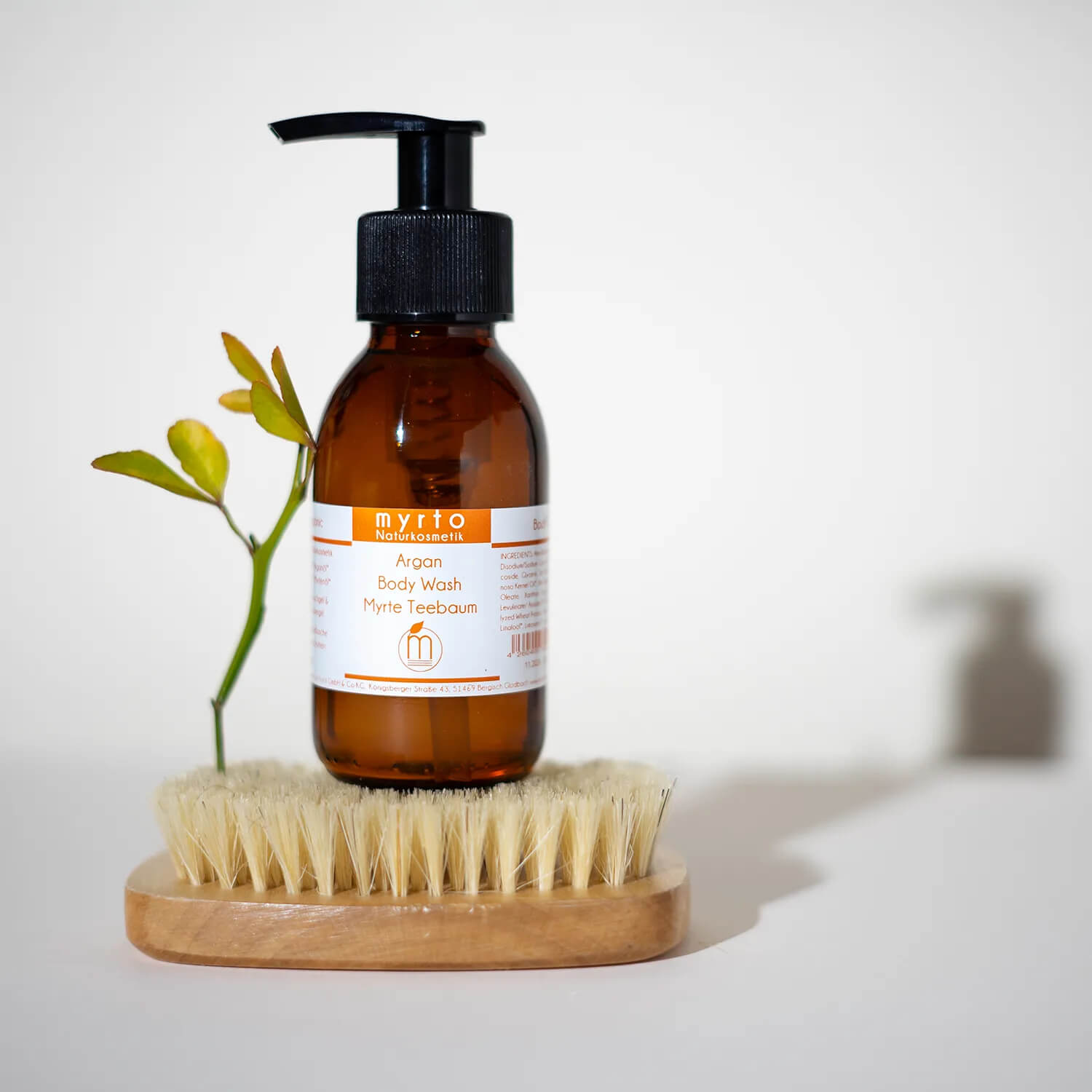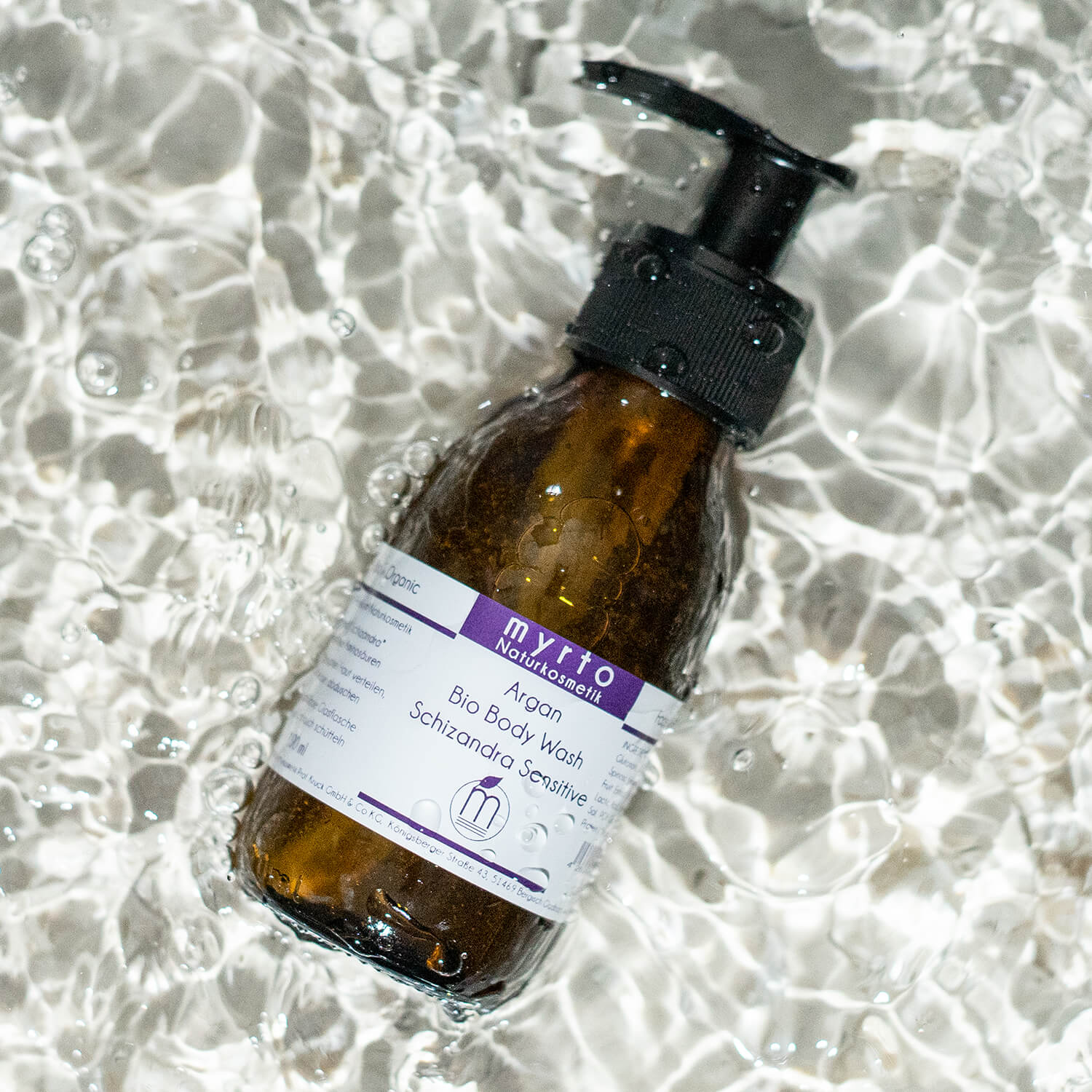Bathing or showering - which is better?
Whether bathing or showering is better depends not only on personal preferences, health considerations and environmental aspects. When it gets uncomfortably cold outside and the typical cold weather approaches, a long bath can have a pleasantly relaxing effect, reduce stress and loosen the muscles. However, the water consumption when bathing is significantly higher than with a short shower, which is more environmentally friendly and cost-effective. In addition, long baths in hot water dry out the skin. Therefore, bath oils are often added to reduce the loss of moisture from the skin. Special bath additives such as Epsom salts, Dead Sea salt, herbal mixtures or essential oils have therapeutic effects on skin diseases or rheumatism. They can have a soothing effect on health problems.
Showering is often more efficient for daily body cleansing. It saves time and is more practical in everyday life, especially when you have to hurry in the morning. We love the refreshed, well-circulated skin feeling after a shower and feel completely comfortable in our skin. For many people, the day can only really begin after a revitalizing shower. After a thorough but gentle cleansing that removes sweat, and excess sebum is removed, leaving the skin feeling wonderfully soft.
What mistakes should you avoid when showering?
- Showering too warm
Does your bathroom regularly get steamy when you shower and the mirror is fogged up? Then you are clearly showering too warm. Warm and even hot showers are wonderfully relaxing, but they are hard on your skin. Hot water causes the skin to swell and removes fat. This leads to redness, flaky or itchy skin. Pimples are encouraged and fine blemishes on the face can burst. The optimal temperature for showering is therefore between 32 and 37 degrees Celsius, ideally not above body temperature. Taking a cold shower at the end is healthy, but it is not a must - especially in the cold season. In general, alternating showers have a positive effect on the immune system, metabolism and heat regulation. It is important that you only shower briefly with cold water and then ensure that you warm up again quickly. - Showering for too long
To clean your skin, a shower time of three minutes is completely sufficient if you do not also wash your hair or shave. From a dermatological point of view, the constant washing out of the skin's own fatty acids by normal shower gels speaks against showering too often or every day. If you sweat a lot - for example after exercise or in the summer heat - you should keep the necessary daily shower as short as possible. - Showering too often
The acid mantle of our skin lies like a film on the skin barrier and protects the skin from drying out, pollutants and diseases. Daily showering with conventional aggressive shower gels removes protective lipids (fats) from the skin barrier and attacks the acid mantle. Dry skin is susceptible to redness, itching, inflammation, blemishes or eczema. From a hygienic point of view, it is therefore perfectly sufficient if you take a short, lukewarm shower 2 to 3 times a week. You can also try alternating hot and cold showers, which is particularly good for preventing cellulite. - Skin-irritating surfactants
Most shower gels foam profusely, but dry out the skin - despite moisturizing additives. Why is that? Almost all shower gels contain large amounts of aggressive sulfate-containing surfactants, which unnecessarily degrease the skin, make it oversensitive, and promote inflammation and eczema. They also promote premature skin aging. The harsh detergent substances that are listed as primary surfactants at the beginning of the ingredients list include sodium laureth sulfate or sodium coco sulfate. In order to keep your skin well-protected, smooth and elastic for as long as possible, you should avoid these harsh detergents in your shower gel. Instead, opt for a high-quality natural shower gel with mild detergents such as the extremely gentle detergent amino acids. They are known for their moisturizing effect and for stabilizing the skin's own acid mantle.
How do you find a suitable shower gel that is gentle on the skin?
Stressed, dry and irritated skin needs different care than oily skin that is prone to blemishes. All skin benefits from moisturizing ingredients such as aloe vera or skin-soothing additives such as schizandra. However, you should avoid unnecessary additives such as synthetic fragrances, alcohol or parabens, which are also often used as preservatives in shower gels. Parabens promote allergies, have a hormone-like effect with largely unexplored long-term effects and also have an increased sensitization potential. Before you decide on a mild shower gel without irritating additives that is suitable for your skin, you should take a close look at each individual ingredient in a product - for example with the help of the Codecheck app.
If your skin is sensitive, dry or irritated, you should choose an extremely gentle, moisturizing shower gel with detergent amino acids. Plant-based amino acid surfactants are the mildest surfactants there are. They protect your skin barrier and hydrate the skin. In addition, detergent amino acids are extremely environmentally friendly and are completely biodegradable in water within 4 weeks. If you have itching, redness or feelings of tension, choose a shower gel with soothing and protective ingredients such as pomegranate, chia seeds and argan oil. If your skin is prone to blemishes and spots, we recommend a shower gel with grape seed and tea tree oil. Detergents containing sulfates, alcohol and synthetic fragrances are taboo.
The myrto Bio Body Wash Series was specially developed for very sensitive, dry and irritated skin. Organic aloe vera gel and the extremely gentle, wash-active amino acids ensure that your skin receives additional moisture when you shower and the protective skin barrier is strengthened. All 3 myrto organic shower balms contain hand-pressed argan oil in combination with soothing plant extracts such as schizandra berries or wheat proteins as well as cold-pressed organic oils from grape seeds, chia seeds or pomegranate. The valuable natural ingredients are absorbed directly by the skin and improve the skin's natural protection. This prevents itching, feelings of tension, irritated or reddened skin.
What care should you use after showering?
After showering, you should carefully pat yourself dry with a towel. Afterwards, your skin will enjoy a pampering massage with the Bio Body Balm Shea Macadamia or one of our Bio Body Oils. The body cream and the myrto body oil are absorbed particularly quickly into the still slightly damp skin. With their skin-like lipid structure, the active ingredient-rich plant oils strengthen the microbiome of the epidermis (top layer of skin), which binds the water. The emulsifier-free formulation of the body balm with beta-glucan from oats prevents premature skin aging and strengthens the skin barrier. This makes you feel completely comfortable in your skin.











